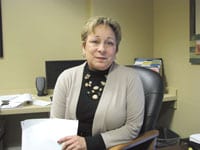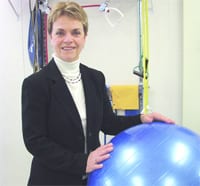The Reverse Mortgage Increasingly Popular Product Can Help People Having Trouble Paying Medical
Not familiar with reverse mortgages? You should be.
A growing number of your neighbors —and their adult children — have been obtaining these innovative loans in recent years to augment retirement income, pay for health care, or to pay off existing debt. According to HUD, the number of reverse mortgages has more than quadrupled from the early 1990s, when the products were first introduced. Since the funds generated by the reverse mortgage can be used for any purpose, the loan can be applied to almost any personal situation.
Reverse Mortgages
The concept of reverse mortgages has been around literally since the Middle Ages, when it was common for an aging landowner to sell his property to a wealthy investor with the stipulation that he be allowed to work the land until he died.
Needless to say, the modern form of reverse mortgages offers much more. Today’s reverse mortgage enables senior homeowners 62 or older to convert part of the equity in their home into tax-free income without having to sell the home, give up title, or take on a new monthly mortgage payment. Borrowers will never, under any circumstances resulting from the reverse mortgage, be forced to leave their homes, providing they make their real estate property tax and insurance payments.
Borrowers can choose to receive the reverse mortgage funds as a lump sum, monthly income (for up to life), as a line of credit, or any combination.
orrowers can use the funds anyway they wish, and they make no monthly payments on a reverse mortgage during the life of the loan. The loan is repaid when the borrower sells the home or permanently moves out. In addition, the repayment amount can never exceed the value of the home.
| Reverse mortgages, although distinctly different from traditional mortgages, still are mortgages and have the same basic cost structure to obtain one. |
Most importantly, the funds from the reverse mortgage are tax-free and can be used for any purpose. As documented by the National Reverse Mortgage Lenders Association, a Washington trade group, seniors have used reverse mortgages to pay for everything from prescription medication or home repairs to Harley Davidsons, a South American expedition, and even to purchase a second home!
The most popular is the Home Equity Conversion Mortgage (HECM), which is insured by the FHA. More than 40,000 HECMs have been made since 1989, and over 7,000 were made in 2000 alone. Other types of reverse mortgages are the Fannie Mae HomeKeeper loan and three jumbo reverse mortgage products developed by Financial Freedom Senior Funding Corp. of Irvine, Calif.
Perception of these loans has changed greatly. When originally introduced, the product was viewed as a loan of last resort for destitute seniors, but as lenders and homeowners discovered new applications, the concept took off.
Jumbo Reverse Mortgages
Jumbo reverse mortgages can free up larger amounts of equity for the senior with a higher-value home and can be incorporated into the senior’s estate planning strategy. Many borrowers work with their legal advisors to best determine the use of this equity release. But despite the higher equity release, these products follow all of the same guidelines, consumer protections and requirements of the two other reverse mortgage products, the HECM and HomeKeeper.
Reverse mortgages, although distinctly different from traditional mortgages, still are mortgages and have the same basic cost structure to obtain one. The fees include appraisal, title insurance, termite inspection, document fees and other typical closing costs. One difference is that the closing costs of a reverse mortgages are generally funded by the loan, so the senior borrower has minimal, or no out-of-pocket expense. Qualification for a reverse mortgage is simple… there is no income qualification and minimal credit review. Loan amounts are based on the age(s) of the borrower(s), the market value of the home and the current interest rate. Coupled with no monthly mortgage payments, this is a very flexible product for senior homeowners.
An important consumer protection built into these loans is the requirement for independent third-party counseling prior to application. This counseling session serves to provide an objective review of the program for the senior and their advisors to help them decide if it is the correct option.
An excellent resource is the National Reverse Mortgage Lenders Association (www.reversemortgage.org), a national nonprofit trade association for financial services involved in reverse mortgages in the U.S. and Canada. NRMLA promotes awareness of reverse mortgages, keeps members informed of legislative and other developments, and represents the industry in Washington, D. C.
Peg McDonough is a Reverse Mortgage Specialist with industry-leader,Financial Freedom™ Senior Funding Corporation, a division of IndyMac Bank, F.S.B.; (413) 533-8939; www.financialfreedom.com.


